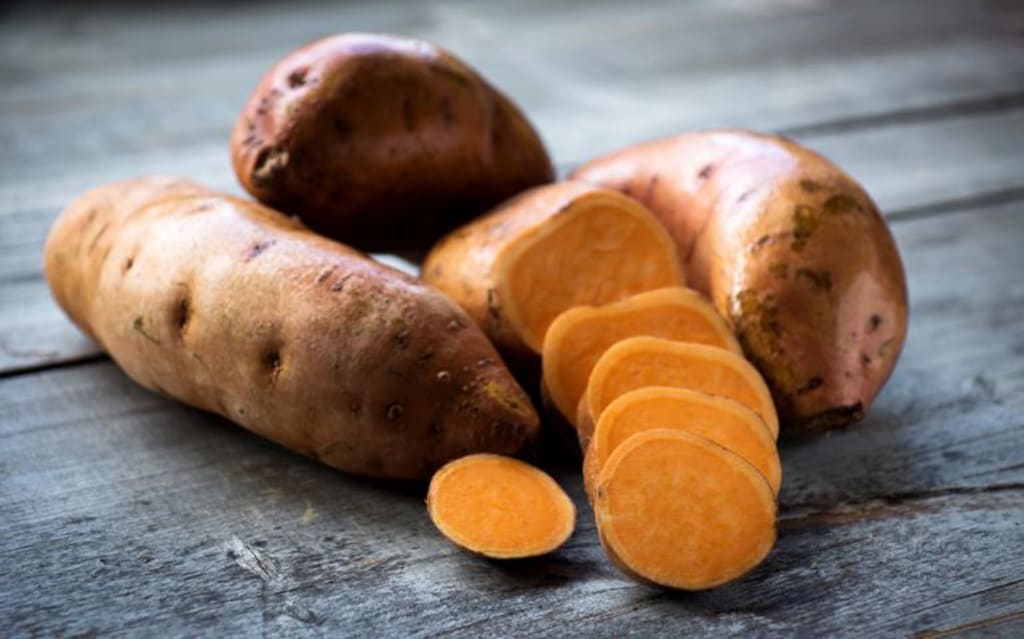I Decolonized My Diet for Black History Month
How to eat like your ancestors

Last Black History Month, I searched the term decolonize on Instagram and came across accounts like @decolonizemyself, @decolonizeyourbookshelf, and the term decolonized diet, coined by author Devon Abbott Mihesuah in her 2020 book Recovering Our Ancestors’ Gardens. It means eating how Indigenous and Black people ate prior to colonialism and has become something of a social movement; the #decolonizeyourdiet hashtag appears in more than 15,000 Instagram posts. Prior to last February’s deep dive, I hadn’t realized the extent to which Western European staples—from ketchup to mustard and hamburgers to pasta—determined not only what I chose to eat but also what I chose to read and the products I used on my skin and hair. As an African American woman, it got me wondering what it would be like to return to my roots and consume food sans Western European influence.
So at the beginning of this Black History Month, I decided to decolonize my own diet, hoping to gain a deeper sense of connection to my ancestors, and to reap the health benefits of West African cuisine. I soon found out this would mean a lot more than swapping out my weekly run to In-N-Out burger for a plant-based stew or seasoned fish with steamed sweet potatoes. Before starting, I did some research on which countries had colonized African nations, and found that I would have to shirk food and ingredients from England, Belgium, Germany, the Netherlands, France, Spain, Portugal, Italy, and the modern-day Ottoman Empire. What I thought would become a horror story—one rife with fears I would cave over a plate of greasy food and an ice-cold soda—turned into a new way of living.
Decolonizing my diet also taught me a lot about colonizers' negative impact on African Americans’ health: As African Americans, we take pride in producing and sharing rich food at holiday gatherings, cookouts, and sporting events. Yet the food we call ours has been tainted by colonial ingredients. Many “traditional” African American dishes come from the use of leftovers that masters refused to eat. Pigs feet, oxtail, and cornmeal are all foods that were given to African Americans as leftovers during the slavery era. Today, fatty and salty foods are primary ingredients in soul food, dishes we embrace with a deep sense of pride. What began as a diet rich with freshly steamed sweet potatoes, corn, and kale has turned into sugary sweet potatoes, grits seeping in butter, and okra soaked in fat from meat. As the ongoing global pandemic wore on, I had begun seeking more comfort not only in soul food but also in sugary drinks and fast food, and was wary of becoming a statistic: Four out of five Black women in the US are overweight or obese. We have the highest obesity rates of any group in America, with 40.7 percent of Black adults qualifying as obese. The decolonization of our diets is not just about embracing our heritage; it is also a movement to address the fact that African Americans historically have struggled with high blood pressure, cardiac problems, and obesity. Perhaps by looking to our roots when it comes to what we put into our bodies, African Americans can find some relief from health issues that have disproportionately plagued us.
I decided to take note of every single thing I consumed for a week. No more greasy food from large corporations. No more sweets on “soul food Sunday.” I began by stocking up on fruit, nuts, and legumes. I started my days with West African dough from a local market alongside fried bananas and fruit. I cooked everything with palm oil, a traditional staple in West African cuisine. The taste of sweet, crisp bananas alongside proteins like crunchy nuts and grilled meat made my mornings. I also started my days by trying several black teas from Kenya and South Africa, which were much stronger than I expected.
Lunch was my favorite meal to prepare while decolonizing my diet. Most of my meals consisted of beans and wild rice alongside a piece of chicken or fish. I seasoned both proteins and grains with rich spices like turmeric and nutmeg, and noticed that most of my meals were naturally sweeter than I would’ve expected. I snacked on nuts and coconut milk yogurt throughout the day to curb cravings for french fries and buttered fettuccine. When dinner came around, I noticed I was much hungrier than usual; I desperately yearned for French bread, a side dish I used to eat almost every day, alongside an Italian or Mediterranean dish. This month, however, I’ve been ending my days with chicken or seafood made with a splash of palm oil and sea salt. I’ve fallen in love with the full-bodied flavor of palm oil and plan to continue using it daily. Late at night, I tend to get lost in the sweet flavor of chin chin, a bite-size West African dessert made of fried dough.
The original plan was to spend seven days consuming a typical West African diet. Afterward, I didn’t just find that I felt healthier; I realized that it was time to put down colonial influences altogether, and I now plan to continue eating this way for the rest of Black History Month. I chose to decolonize my diet to celebrate myself as an act of love and acceptance. Decolonizing my diet was not primarily about me; it was about honoring and recognizing the struggle of my ancestors. Yes, I wanted to treat my body with the respect and grace it deserves after hundreds of years of my people suffering at the hands of colonizers. But decolonizing my diet was mainly about choosing to refrain from the foods my grandmother consumed as she picked cotton rather than attending high school.
As I continue decolonizing my diet, I feel compelled to think about the remnants of slavery and have noticed how its repercussions affect me every day. Eating a decolonized diet is an act of rebellion and liberation. I hope that all Black people can find that sense of liberation too. Or at least a taste of it.






Comments
There are no comments for this story
Be the first to respond and start the conversation.